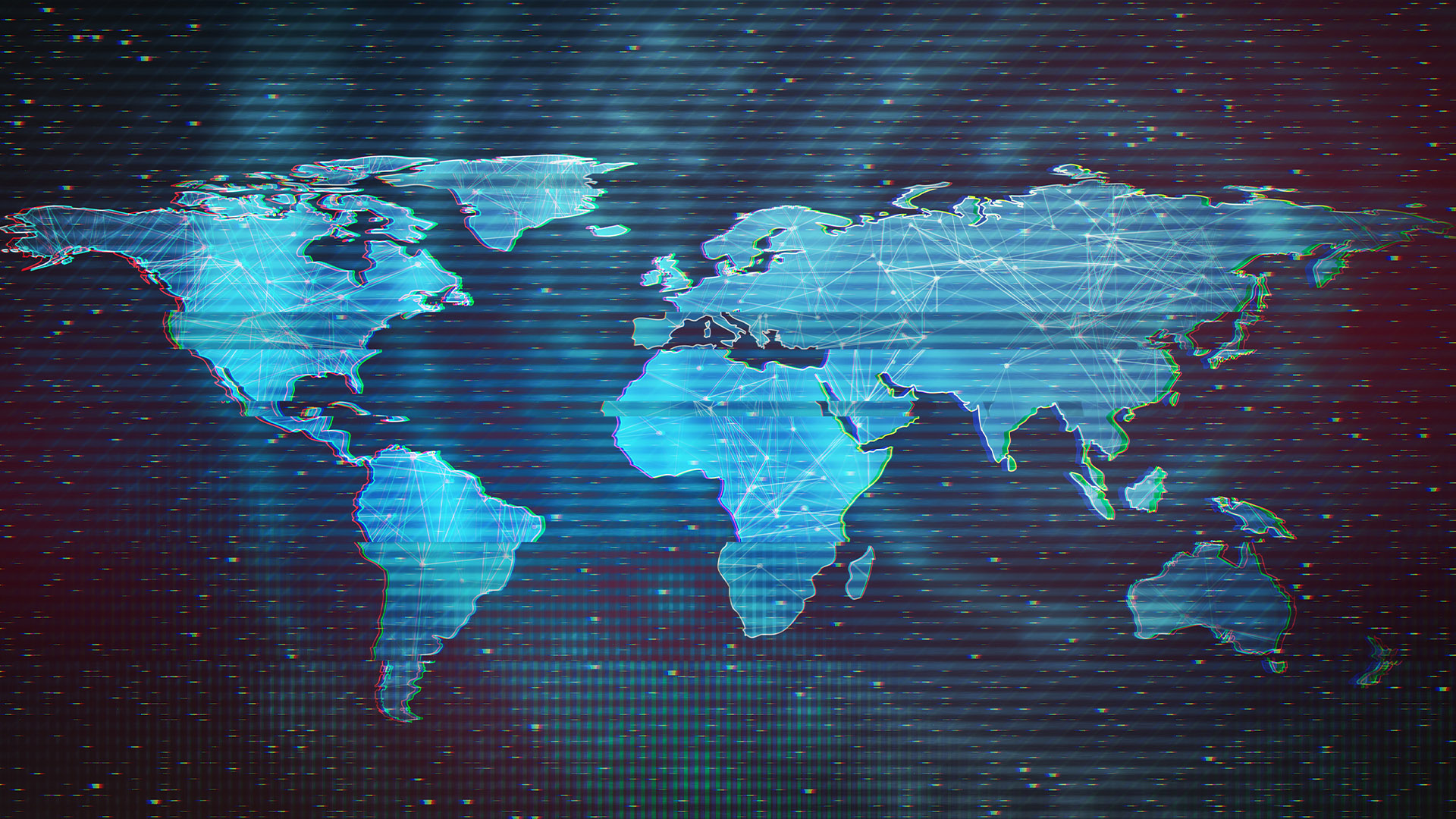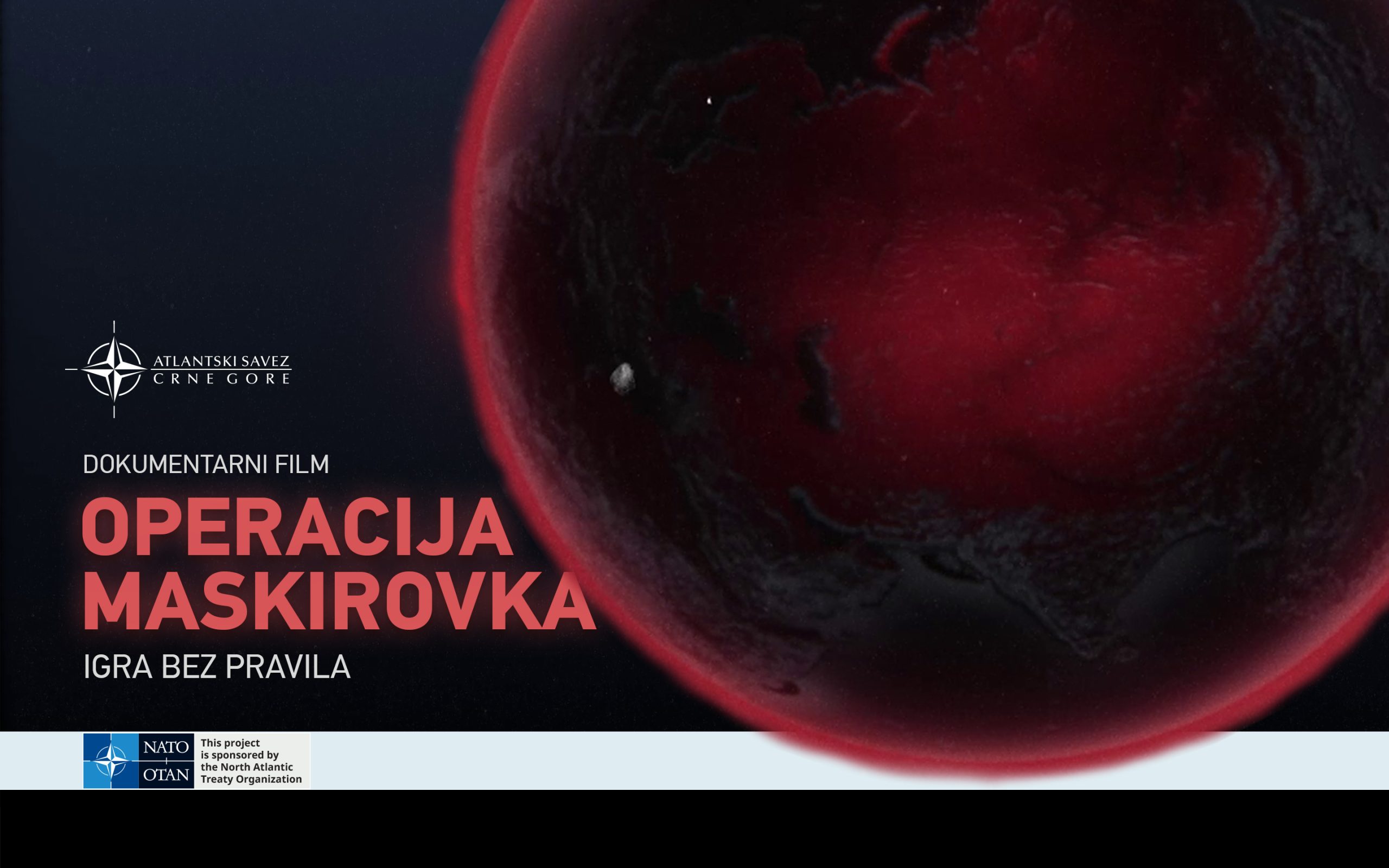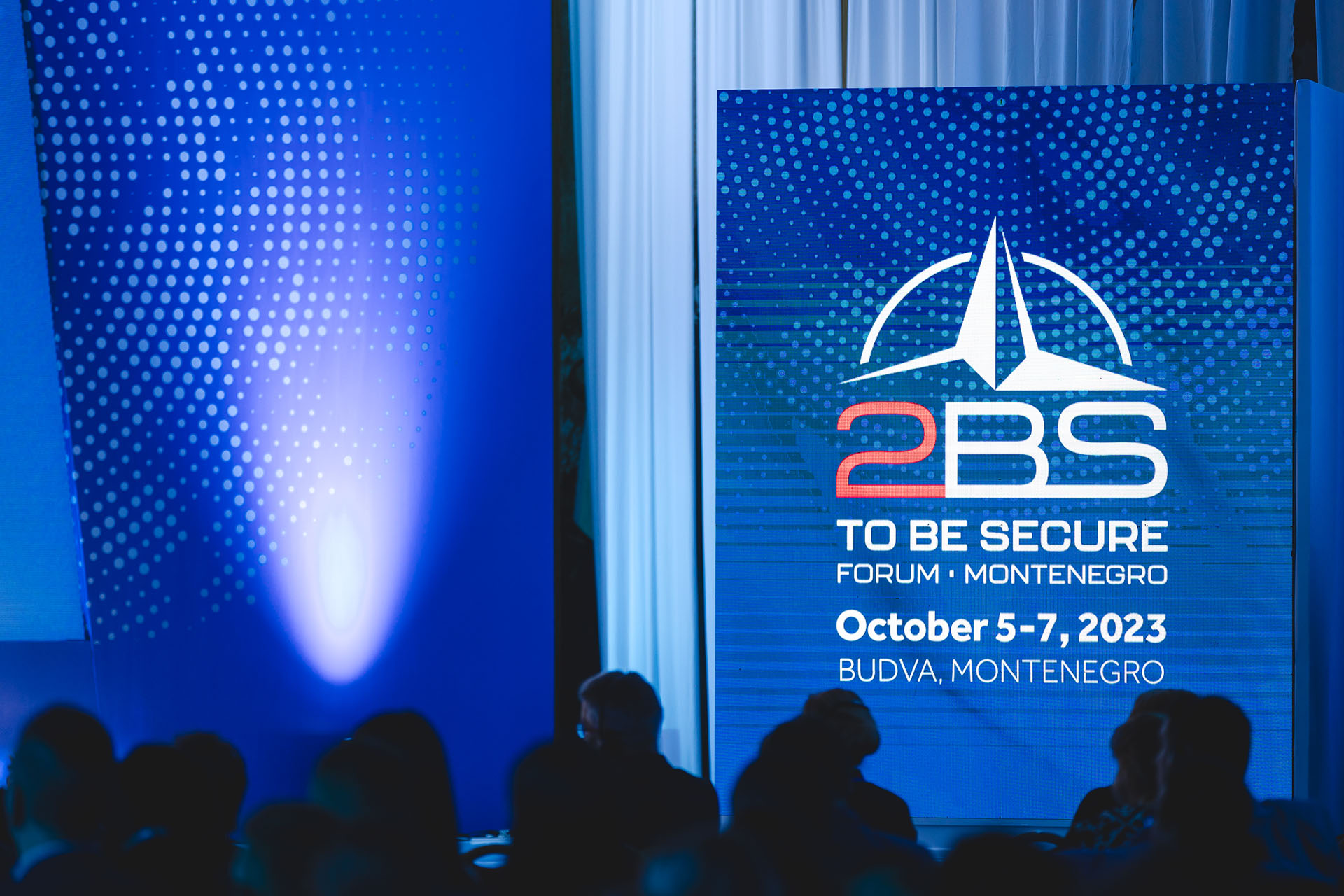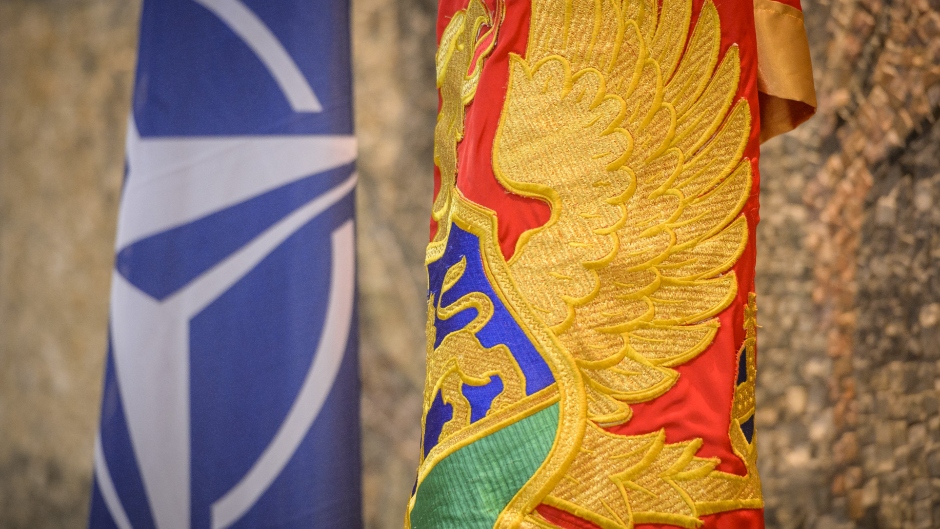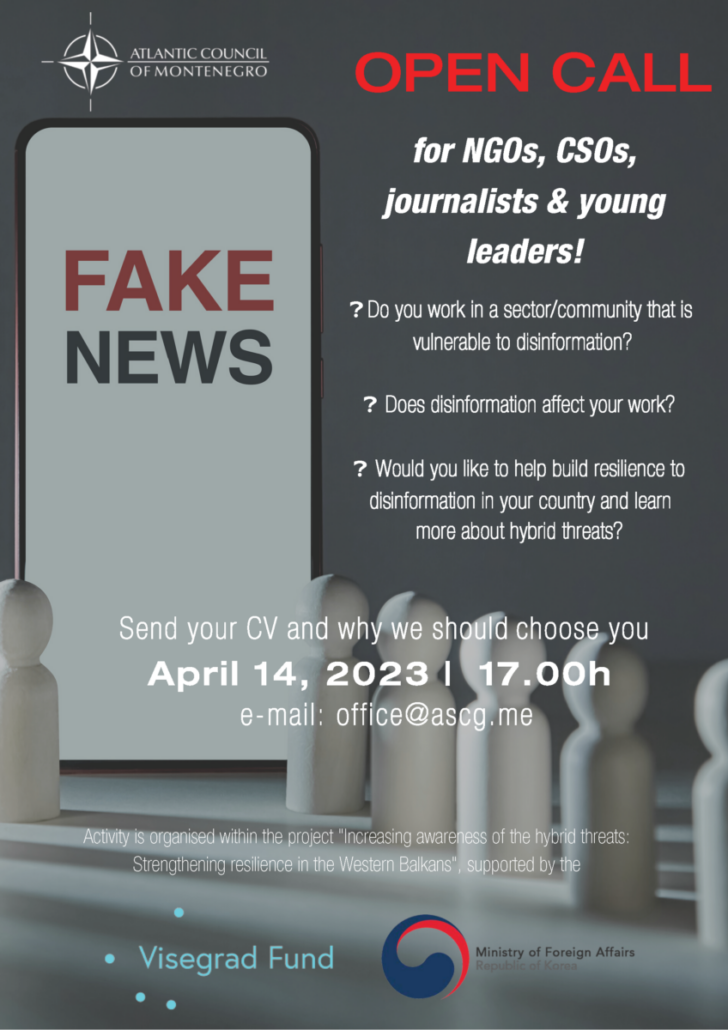Abstract: This paper aims to understand how and if the perception of Russia in Montenegro, at both societal and political levels, has evolved in the aftermath of the Russian invasion of Ukraine. The author seeks to identify the factors that influence this perception and explore the extent of Montenegro’s openness or reluctance towards political, economic, and security cooperation with Russia. It is assessed whether Russia is primarily seen as a systemic partner or a threat in Montenegro, and how views differ between the general population and political actors.
1. Introduction
Montenegro and Russia have a complicated relationship that has evolved over recent years. Historically, Montenegro has been a Moscow ally, but it sought a more pro-Western path after splitting from Serbia in 2006. Despite strong opposition from Russia, Montenegro joined NATO in 2017. However, the Kremlin has continued to exert significant influence in Montenegro, mainly through the Serbian Orthodox Church (SPC), local political and media proxies, and substantial foreign direct investment.
The distancing between Podgorica and Moscow occurred after Montenegro joined the European Union sanctions against Russia in 2014 (due to Crimea’s annexation), culminating in the finalization of NATO accession. A direct consequence of those processes was the coup attempted 2016 organized by members of the Russian intelligence structures. As a result of such a sequence of events, Montenegro became fertile ground for Russian influences of various kinds, which did not lose their intensity even after achieving full membership in NATO.
Russia’s invasion of Ukraine has emphasized social and political distancing between pro-Western and pro-Russian voices within Montenegro. Although Montenegro was quick to join in sanctions against Russia, it has yet to implement some due to political infighting. For instance, the ban on Russian state-sponsored media is yet to be implemented fully.
The country’s government in the technical mandate, which collapsed following a no-confidence vote in August 2022 due to the lack of transparency in the process of signing the Fundamental Agreement with the Serbian Orthodox Church, has been divided on the issue of Russian aggression, as vice-president and certain ministers have strong pro-Russian stances.
Russia’s influence in Montenegro has been seen as growing, mainly through the Serbian Orthodox Church, the largest religious and one of the most trusted institutions in the country and has become a significant political player and has been instrumental in organizing large religious-political gatherings.
On the societal level, these developments have also raised concerns about the rise of nationalism and deeper political, ethnic, and identity-based divisions within Montenegrin society, potentially hindering democratization and the development of civil society, as the citizens remain divided on values, ideological, and thus geopolitical level.
2. Russian aggression and the positioning on the political level
The Russian invasion of Ukraine has further exposed the inherent divisions in Montenegro. While much of the political landscape sided with Ukraine, echoing Western condemnations of Russia, parties like the former Democratic Front and True Montenegro didn’t follow. Using the Kosovo case, these pro-Russian groups argue that Russia merely replicated Western actions against Serbia. These factions seem to disregard Montenegro’s national interests, NATO membership, and EU aspirations in their political conduct.
On the other hand, the caretaker Prime Minister, Dritan Abazović, visited Kyiv on June 15, 2022 and expressed support for Ukraine’s path to the EU. The Montenegrin Parliament adopted in July 2022 a resolution condemning Russia’s military invasion of Ukraine and supporting measures by the European Union, highlighting Montenegro’s, at least formal, readiness to fully align its policy with its allies.
Montenegro has sent aid to Ukraine in weapons and military equipment worth more than ten million euros and received 32,000 refugees from Ukraine by January 2023, more than any other country in the region and on the level of Hungary, which borders Ukraine.
Montenegro’s alignment with the EU’s foreign and security policy, including EU restrictive measures following Russia’s unprovoked aggression against Ukraine, was greeted by the EC Montenegro 2022 Report. However, the implementation was criticized.[i]
Despite a broadcasting ban on RT and Sputnik, Montenegrin citizens can still access these sites online. While Montenegro closed its airspace to Russian airlines, Russians can still enter via Serbia and AirSerbia flights.
Amidst Russian aggression, the opening of Beluga vodka factory in Nikšić by Russian businessman Alexander Mechetin raises questions about the 43rd Montenegrin Government’s stance on sanctions and Ukraine. The brand is allegedly shunned in the US and parts of Europe due to the Russian invasion. After Latvian sanctions, the company had to shut down its warehouse operations there.[ii] Yet, Radio Free Europe reports that the government clarified Mechetin is not on the sanctions list and dealings with him are beyond doubt.
Since the onset of Russian aggression on Ukraine until September end, 12 Russian diplomats were declared persona non grata by Podgorica. In September 2022, Montenegro’s Agency for National Security (ANB) expelled 6 Russian diplomats and 28 foreign nationals linked to foreign services after an operation with international partners. However, the abrupt dismissal of the ANB director few days after, without clear explanation, raises concerns about the Government of Montenegro’s commitment to combating Russian malign activity.
3. Russian aggression and the Montenegrin public
More than events at the political level, social developments in 2022 and 2023 have confirmed serious ideological and value differences among the citizens of Montenegro. The opinion is divided over Russia’s war in Ukraine, with the country’s large ethnic Serb community generally more sympathetic to the Russian and anti-Western narrative than those who identify as Montenegrins, Bosniaks, Croats or Albanians.
Cetinje, the old royal capital of Montenegro, is the only city in the region and Europe where rallies supporting Ukraine were organized daily in the first 100 days of Russian aggression. In a continuous period, the organizers carried out actions with the Embassy of Ukraine in Montenegro, which included the integration of Ukrainian refugees into Montenegrin society, organizing humanitarian activities, manifestations, and cultural, artistic, and educational events.[iii]
While rallies supporting Ukraine were held in Montenegro, several pro-Russian protests also took place, blaming the West for the conflict in Ukraine.[iv] Some of the gatherings were promoted on Aleksandar Zaldostanov’s Facebook account (the leader of the Night Wolves from Moscow). Despite the display of aggressive symbols, such as the “Z” on the Russian flag and the flag of the self-proclaimed “Donetsk Republic”, Montenegrin Police and the Prosecutor’s Office in Podgorica did not assess these as criminal offenses or public order disturbances.[v]
So-called orthodox brotherhoods, the Association of Journalists of Montenegro, and IN4S, the leading Russian media proxy in the country, organized public gatherings with the guest speaker being Igor Damjanović, correspondent of IN4S and Serbian tabloids from Ukraine. Damjanovic often boasts on his social media about meeting high-level Russian army officials.
Unlike the Ukrainian Orthodox Church of the Moscow Patriarchate, which severed ties with Russia due to the invasion of Ukraine, the Serbian Orthodox Church, one of the most trusted institutions in Montenegro, remains subordinate and aligned with Putin’s agenda in Ukraine. This can be clearly seen through the performances of Metropolitan Joanikije of Montenegro and Littoral. In mid-October 2022, during his stay in Moscow, he fully supported Russia and blamed the war on the West.[vi] Half a year earlier (on March 13, 2022), he pointed out that the events in Ukraine were the consequences of godlessness that had taken root, accusing Protestant Europe from which the evil of godlessness, atheism, and communism came.[vii]
In addition to pro-Russian rallies and SOC’s support for the aggression, the performances of Ukrainian bands were also canceled in Montenegro due to the protests of pro-Russian groups.[viii] As a result, the Ukrainian Embassy appealed to the authorities to react, but no results were achieved.[ix]
According to the polls, in 2023, there is a noticeable decline in respondents opposing aggression. Such individuals amounted to 66% in July 2022 and 56% in March 2023. Around 16% support Russia’s military action, while 56% are against it, and the percentage of neutrals has jumped to 27.9%. The situation is similar regarding sanctions against Russia – 35% are now neutral, indicating a rise in indifference or concealment of stance and the potential for a change in opinion. Also, according to the same research, the number of citizens supporting sanctions is decreasing.[x]
On the other hand, a worryingly high number of citizens in Montenegro believe in conspiracy theories, propaganda narratives, and disinformation about the aggression in Ukraine spread by Russia, and there is also an evident growing anti-Western sentiment. Although 44% believe it’s a lie that Russia is fighting against Nazism in Ukraine, as much as 23% of those believe it. Also, 30% of the population believes that Russia is a more dominant force than the EU and the US and that these actors distort traditional values (41%).[xi]
4. Factors influencing the perception of Russia
The Russian aggression against Ukraine has only exposed and brought to the surface the socio-political divisions resulting from the ideological split in Montenegrin society. The dilemma of whether to favor Russia or stand united with Ukraine continues to deepen a pre-existing divide within Montenegro’s political and national identity in regard to values, ideology and foreign policy orientation.
Despite sanctions and aggression, Russia remains a key foreign investor in Montenegro, suggesting an economic bond. Russian tourists, who constituted a significant portion of total tourists in recent years[xii], contribute substantially to Montenegro’s tourism sector—a vital part of its GDP. These financial ties may be why Montenegro may consider deeper cooperation with Russia.
Montenegro has seen a significant influx of Russian citizens this year. Over 64,000 have reported stays up to 90 days, and more than 21,000 Russians have obtained some form of residence. Furthermore, from 2022 to 2023, 56% of over 9,000 newly established business entities in Montenegro are registered to Russian citizens.[xiii] From August 31 to November 8, 2022, over 100 Russian citizens received Montenegrin citizenship through the economic citizenship program, which was heavily criticized by EU and abolished by the Montenegrin government.[xiv]
The increasing Russian presence and eventual political organizing could considerably impact this small NATO country’s economy, infrastructure, culture, and potentially socio-political dynamics.
The Serbian Orthodox Church in Montenegro, with a pro-Moscow stance, has become a key political player, backing pro-Russian and pro-Serbian coalitions and influencing positive societal attitudes towards Moscow. Also, Serbia’s close relationship with Russia and its funding for Moscow-friendly pro-Serbian organizations and media in Montenegro shape the country’s perception of Moscow.
As of now, the pro-Western majority of the society still opposes the aggression and supports Ukraine. Within these circles, Russia is seen as a potential threat, as its previous actions to reshape the political reality in Montenegro ranged from sowing disinformation through local pro-Russian media to radical operations such as the Russian interference in the attempted coup in Montenegro in 2016. Also, a major cybersecurity attack in 2022 exposing Montenegro’s lack of cybersecurity readiness was linked to Russia, though never confirmed.[xv]
5. Final Remarks
Russian aggression didn’t change Montenegrin societal stances towards Russia or the West. Rather it just reaffirmed the already existing biases, as there has been a steady percentage of support for both sides over the last two years.[xvi]
Despite Montenegro’s alignment with the EU’s restrictive measures following Russia’s unprovoked aggression against Ukraine, the implementation was lacking due to political volatility, government instability and divisions, and tensions that have stalled decision-making processes.[xvii]
After the results of the recent parliamentary elections held on June 11, at this point it seems unlikely that a stable new government can be formed. Yet, it’s doubtful any incoming government would halt EU integration, supported by 76% of citizens[xviii], or openly back Russia, despite the Serbian Orthodox Church’s growing non-religious influence. Notably, the last three governments’ downfall was tied to SPC relations.
The Russian socio-political influence in the country will likely weaken as the EU integration process progresses. In that regard, Montenegro needs to form a stable and pro-European government that will play its part and implement the necessary reforms to become the next EU member state. Still, the EU has to step up its game in the Balkans and become a more present geopolitical player in its neighborhood.
Author: Milan Jovanović | Researcher | Digital Forensic Center | Atlantic Council of Montenegro
Disclaimer: The research for and production of this report has been conducted within the PROGRESS research framework agreement. Responsibility for the contents and for the opinions expressed, rests solely with the authors and does not constitute, nor should be construed as, an endorsement by the Netherlands Ministries of Foreign Affairs and Defence.
6. References
[i] Sanja Novaković, Predrag Milić, Milovac: Iza pridruživanja Crne Gore sankcijama Rusiji ne stoje konkretne akcije, 15 March 2022, Glas Amerike, Available at: https://www.glasamerike.net/a/rat-u-ukrajini-balkan-crna-gora-rusija-ukrajina-sankcije-oligarsi/6486341.html
[ii] Duško Mihailović, Tamara Klikovac, Ruski brend, nepoželjan u svijetu, počinje proizvodnju votke u Nikšiću, 15 February 2023, Pobjeda, Available here: https://www.pobjeda.me/clanak/ruski-brend-nepozeljan-u-svijetu-pocinje-proizvodnju-votke-u-niksicu
[iii] Stota šetnja podrške Ukrajini na Cetinju, 3 June 2022, Radio Slobodna Evropa, Available at: https://www.slobodnaevropa.org/a/stota-setnja-cetinje-podrska-ukrajini-crna-gora/31882436.html
[iv] Hronologija podrške ruskoj invaziji na Ukrajinu na Zapadnom Balkanu, 24 March 2022, Detektor.ba, Available at: https://detektor.ba/hronologija-podrske-ruskoj-invaziji-na-ukrajinu/
[v] Aneta Durović, Prozapadni kurs Crne Gore s pogledom na Rusiju, 16 February 2023, Radio Slobodna Evropa, Available at: https://www.slobodnaevropa.org/a/prozapadni-kurs-crne-gore-rusija/32274692.html
[vi] Joanikije u Moskvi: Ruska crkva i ruski narod u iskušenjima, molimo se za njih, 16 October 2022, Pobjeda, Available here: https://www.pobjeda.me/clanak/joanikije-u-moskvi-vjerujemo-u-snagu-ruske-crkve-ona-i-ruski-narod-su-u-iskusenjima
[vii] Joanikije: Događaji u Ukrajini su posljedice bezbožništva, i Crna Gora je projektovana da bude mala Ukrajina, 18 March 2022, Vijesti, Available here: https://www.vijesti.me/vijesti/drustvo/594673/joanikije-dogadjaji-u-ukrajini-su-posljedice-bezboznistva-i-crna-gora-je-projektovana-da-bude-mala-ukrajina
[viii] Podržavaoci Rusije spriječili nastup ukrajinskog benda u Budvi, Ambasada Ukrajine: Alarmantan signal za sve, 15 February 2023, CdM, Available here:https://www.cdm.me/politika/podrzavaoci-rusije-sprijecili-nastup-ukrajinskog-benda-u-budvi-ambasada-ukrajine-alarmantan-signal-za-sve/
[ix] Ambasada Ukrajine pozvala vlasti da reaguju zbog otkazivanja koncerta ukrajinskog benda u Budvi, 15 February 2023, Radio Slobodna Evropa, Available here: https://www.slobodnaevropa.org/a/otkazan-koncert-ukrajinskog-benda-u-budvi-ambasada-ukrajine-vlasti-hitno-da-reaguju/32273171.html
[x] CG puls, 28 April, 2023, Centre for Civic Education, Available here: https://cgo-cce.org/infografici/cg-puls/
[xi] Građani/ke masovno vjeruju u dezinformacije i teorije zavjere, 7 March 2023, Center for Democratic Transition, Available here: https://www.cdtmn.org/2023/03/07/gradani-masovno-vjeruju-u-dezinformacije-i-teorije-zavjere/
[xii]https://monstat.org/uploads/files/TURIZAM/individualni%20godisnji/2022/Dolasci%20i%20no%C4%87enja%20turista%20u%20individualnom%20smje%C5%A1taju%202022_.pdf
[xiii] Arrivals and overnight stays of tourists, in individual accommodation, 28 February 2023, Statistical Office of Montenegro, Available here: https://www.slobodnaevropa.org/a/crna-gora-rusi-migracije/32349003.html
[xiv] Crna Gora obavijestila Brisel da je ukinula ekonomsko državljanstvo, 10 February 2023, Radio Slobodna Evropa, Available here: https://www.slobodnaevropa.org/a/crna-gora-ukinula-ekonomsko-dr%C5%BEavljanstvo/32265425.html
[xv] Ruske službe izvele sajber napad na Vladu Crne Gore, tvrdi Agencija za bezbjednost, 26 August 2022, Radio Slobodna Evropa, Available here:https://www.slobodnaevropa.org/a/ruski-hakeri-napad-vlada-crne-gore/32005931.html
[xvi] Political Public Opinion, 14 May 2023, CEDEM, Available here: https://www.cedem.me/wp-content/uploads/2023/05/Prezentacija-MAJ-2023-FINALE-23h.pdf
[xvii] Montenegro Report 2022, 12 October 2022, European Commission, Available here: https://neighbourhood-enlargement.ec.europa.eu/system/files/2022-10/Montenegro%20Report%202022.pdf
[xviii] Political Public Opinion, 14 May 2023, CEDEM, Available here: https://www.cedem.me/wp-content/uploads/2023/05/Prezentacija-MAJ-2023-FINALE-23h.pdf



